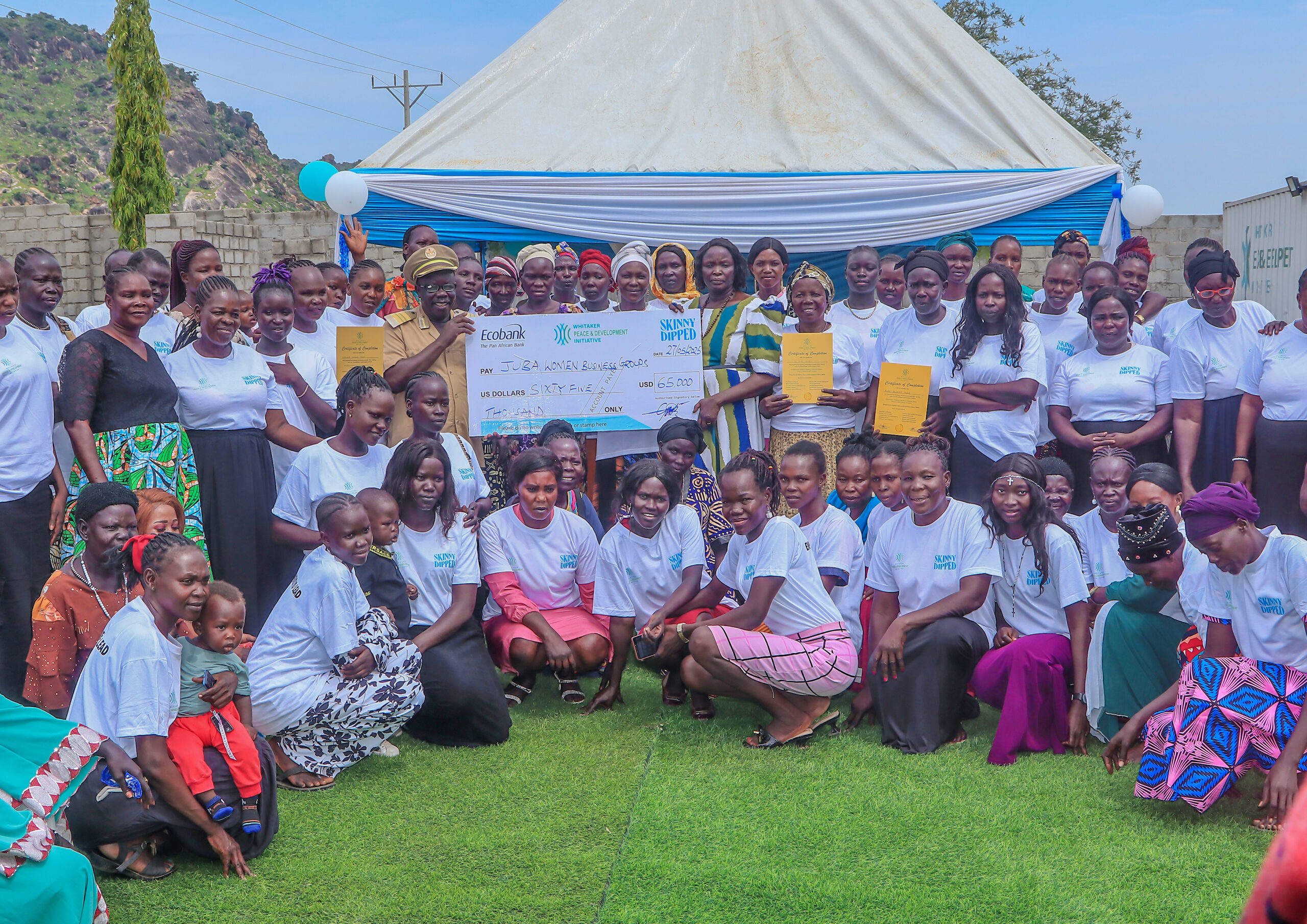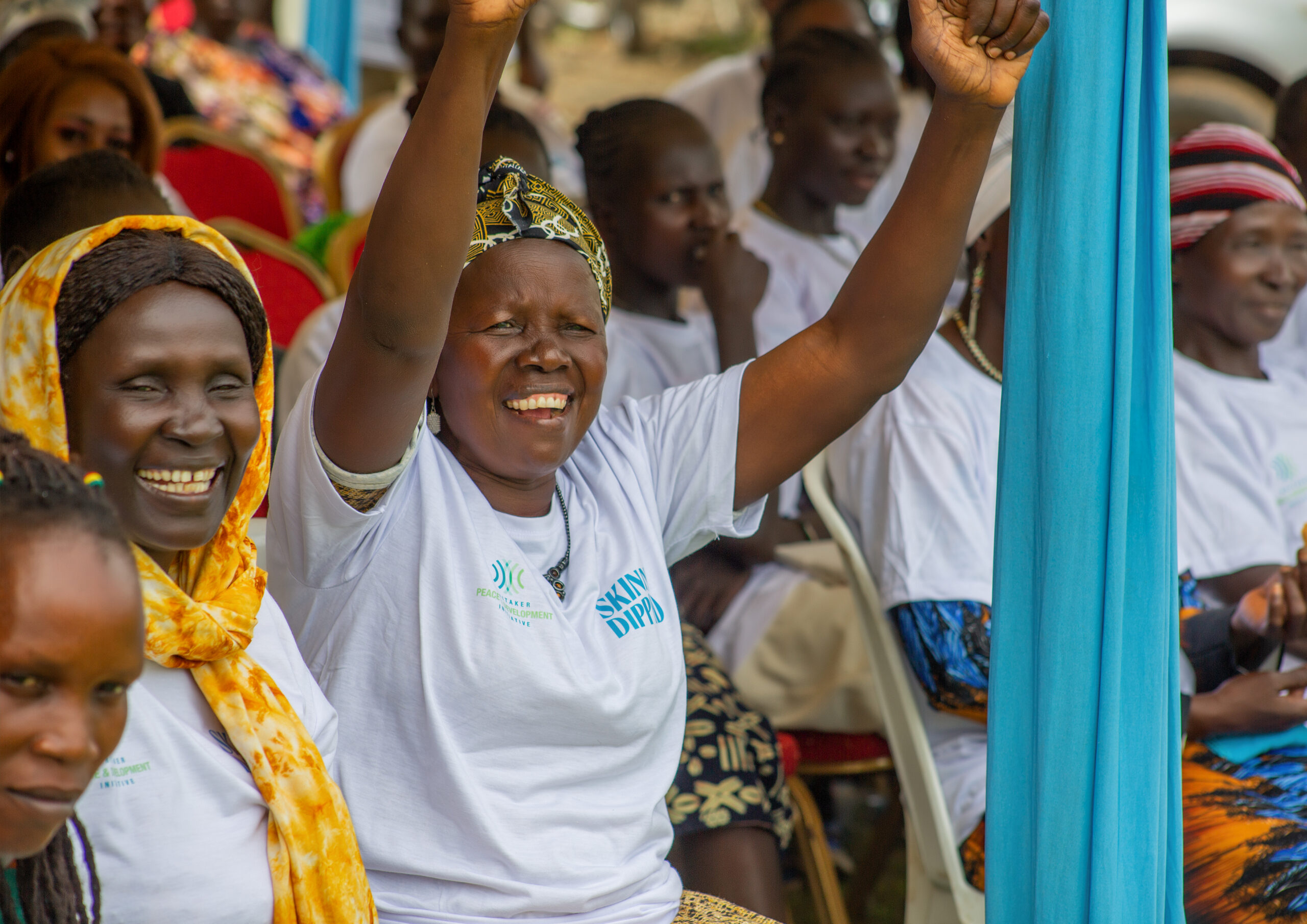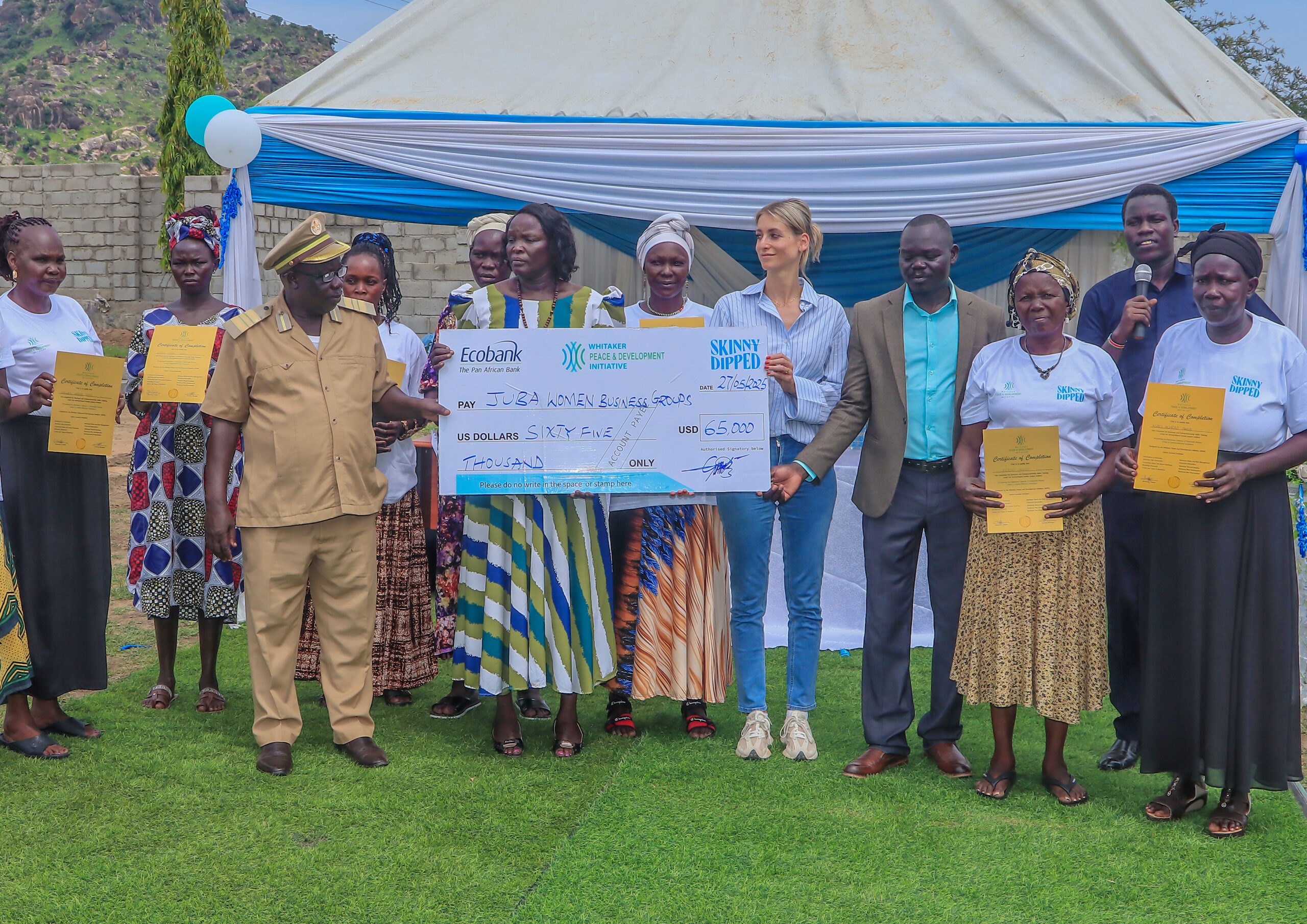July 21, 2025 – Back in May, WPDI, in partnership with SkinnyDipped, proudly celebrated the graduation of 150 women from a transformative three-month Business & Entrepreneurship training in Juba, South Sudan, in the framework of our Women’s Livelihood Program. The ceremony, held at WPDI’s Community Learning Center in Kuggi, marked a significant milestone for these women, who come from some of the most underserved areas of Central Equatoria State.

The female participants were organized into 15 Village Savings and Loans Associations (VSLAs), drawn from communities including Lirya, Lokiliri, Gudele 2, Lokwilili, Jebel Yesua, New Site-Goroyo, and Kworijik Luri. Each group of ten to eleven members received training not only in entrepreneurship but also in VSLA principles and operations. These include collective saving, low-interest lending, and structured financial management. These associations now function with established constitutions, elected committees, and social funds that provide emergency support to members, enhancing both financial resilience and community solidarity.
To support their entrepreneurial journeys, each group was awarded a symbolic sum deposited into their bank accounts as revolving funds. This seed funding, provided thanks to the generous support of the SkinnyDipped Foundation, empowers women to either launch or scale up their small businesses, building sustainable livelihoods that will eventually reverberate through families and neighborhoods.

Throughout the program, the women demonstrated exceptional commitment despite facing numerous barriers, including limited access to land, capital, and formal education. Many juggle the dual responsibilities of managing households and running businesses, and the tailored training offered by WPDI under the Women’s Livelihood Project aimed to meet their needs head-on.
The impact of this initiative is already evident in the lives of the graduates. Viola Francis, a snack vendor from Munuki, shared how the program revived her business: “My kids are now in university, and I can sleep peacefully knowing I can provide for them. The training opened my eyes, and I am grateful for this opportunity.” For Vicky Raja of Jebel Yesua, the knowledge gained went beyond business strategy: “Now I know how to take care of my business and secure my children’s future.” For Betty Noyka from Lokwilili, the course brought newfound confidence and stability: “I now understand how to run my business effectively. The funds have helped me grow, and I can now support my children’s education, which is very expensive. This program has truly transformed our lives.”
WPDI’s Deputy Country Manager, Gama Hassen, underscored the significance of the initiative, highlighting the strong trust within the groups and the effective use of the revolving funds as indicators of lasting change. He emphasized WPDI’s ongoing commitment to supporting vulnerable groups, including returnees and host communities, across Central Equatoria State.

International and local partners also joined in recognizing the achievement. Lorissa Beutter, Program Manager for the Swiss Agency for Development and Cooperation (SDC), praised the graduates’ resilience and dedication: “Women entrepreneurs are some of the hardest working people I know. You juggle many roles; yet, you showed incredible commitment. ‘Empowered to Lead’ is your motto, and you will indeed lead your families and communities toward a brighter future.”
Echoing that sentiment, Cicilia Laku Wani, Chair of the Central Equatoria Women’s Union, encouraged the women to put their knowledge and resources into action, calling on them to uplift their communities. Hillary Juma, Director of Luri Payam, noted the broader community impact: “This initiative has transformed many lives here in Central Equatoria. The support from our donors has made a significant difference, enabling women to graduate and start businesses. The community’s cooperation has been vital to this success.”
The Women’s Livelihood Project exemplifies WPDI’s holistic approach to peacebuilding and development. Our approach combines capacity building, financial empowerment, and social cohesion, equipping women with the tools they need to lead. WPDI is therefore aiming to foster a new generation of entrepreneurs whose success strengthens not only individual households but also the fabric of South Sudanese society.
In partnership with
